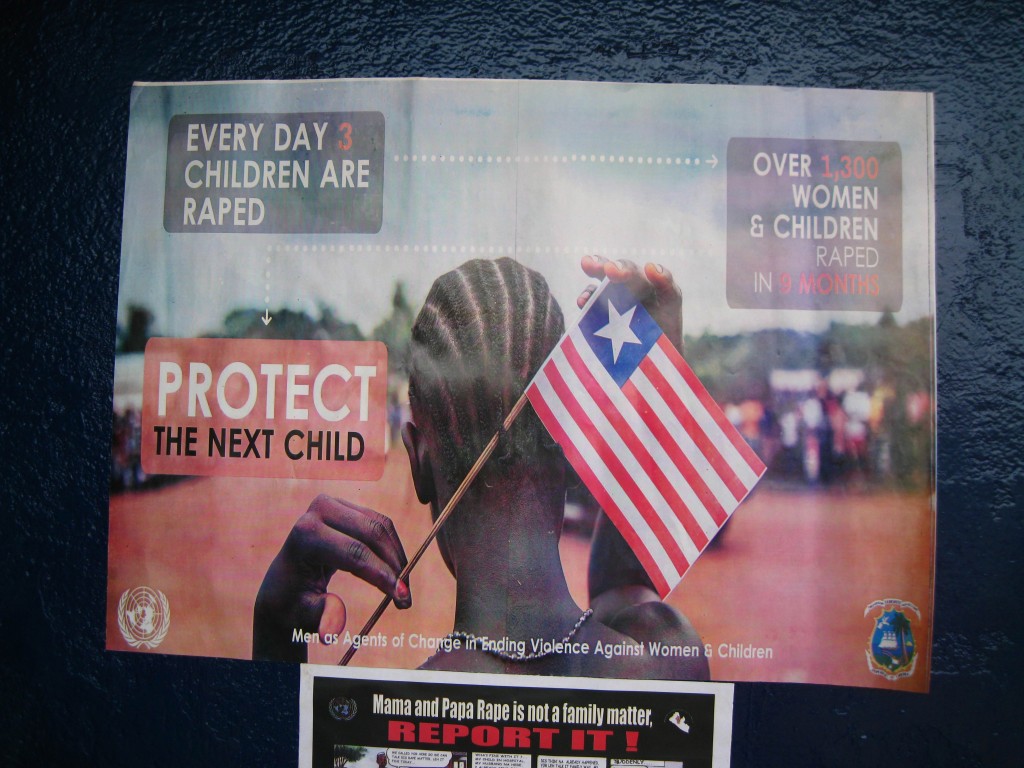
Written by Shai A. Divon, Postdoctoral Researcher, Noragric and Morten Bøås, Research Professor, NUPI.
In Western political thought, the statutory legal system is often seen as the only institution with legitimacy to administer justice. However, in many societies, customary redress mechanisms that predate the modern state are often the preferred choice of many. In Liberia, many women and men must make these choices every day in order to find redress for a variety of cases, including for Sexual and Gender Based Violence (GBV) offences. To understand how and why people in Liberia prefer one system of justice over another, we must explore the historical and cultural contexts of that country.
Established by freed slaves repatriated from the United States in 1847, the Republic of Liberia has a unique history on the African continent. The Americo-Liberians, as these former slaves became known, intended to create a safe haven for themselves and their families away from the racial intolerance in America. The problem, however, was that they were seen as much as strangers in Liberia as they had been in the United States. The main difference was that in Liberia they became the ‘masters’ and the indigenous dwellers were the ‘servants’.
The Liberian constitution devised by the Americo-Liberians was modelled after the American example and stated that all men are born free and equal. But as was the case in America, the authors of the Liberian constitution did not regard the original population of Liberia as equals. As such, an elite ruling class consisting of the Americo-Liberians was established, and a lower class constituting of the indigenous population was subjected to new forms of governance. In practice, this division led to the establishment of a dual legal system devised to facilitate the governance of the indigenous population through indirect rule. Thus, a statutory legal system based on the Anglo-American Common Law model governed the formal state, and a customary legal system was codified to facilitate the governance of the original population of Liberia.
The rule of the Americo-Liberians ended in 1980 with a coup-d’état. But internal rivalries, corruption, and ethnic divisions between the new rulers of Liberia led to two devastating civil wars (1990-97 and 1999-2003). These were wars of fragmentation and ethnic and regional cleavages. As they rolled through Liberia and destroyed the little that existed of state institutions, they also led to high levels of GBV. As state institutions collapsed, the statutory legal system disintegrated, leaving customary law as the only option for justice seekers in local communities across the country.
Since the end of the last civil war (2003), the international community is engaged in a post conflict reconstruction effort which includes an attempt to rebuild the justice system. These efforts face the factual historical presence of a plural legal system, as well as a deep sense of distrust expressed by most ordinary Liberians against the statutory system, seen as biased towards those with money and political influence. As such, one of the challenges to post-conflict reconstruction in Liberia is to locate viable ways to harmonise between a statutory system needed to govern a viable state, and an existing customary system legitimised by tradition and used by most Liberians as the preferred conflict resolution mechanism.
GBV is one of the most prominent issues plaguing post war Liberia. A number of historical and contemporary realities are expressed through GBV in Liberia. Among these are the traditional gender roles that codify the domestic subordination of women in Liberian society exacerbated by the widespread practices of GBV that emerged during the civil war.
Against this background, the ‘Mapping Gender-based Violence and Access to Justice: Re-traditionalisation in Liberia’ (GENTRA) project was established to understand how Liberians decide to navigate the plural legal system to seek redress for GBV cases. What this research revealed is that there is an important gap between the choices people make, and their actual preferences. The choices reflect the gendered roles in the Liberian society coupled with the poverty and economic dependency of women on men, especially in domestic GBV cases. In addition, the complex concept of communal arrangements in Liberia allows for the existence of a variety of conflict resolution mechanism that fall under the heading ‘customary’, as well as social arrangements that lead to peer pressure to use these ‘customary’ systems. Thus, while in most cases female victims of GBV turn to the customary solution, they prefer to use the statutory system to seek redress and punishment against offenders. One important reason for this, particularly for domestic GBV cases, is a combination of their economic dependency on men and peer pressure in their communities
Read the full report of this study: NUPI Working Paper 864


